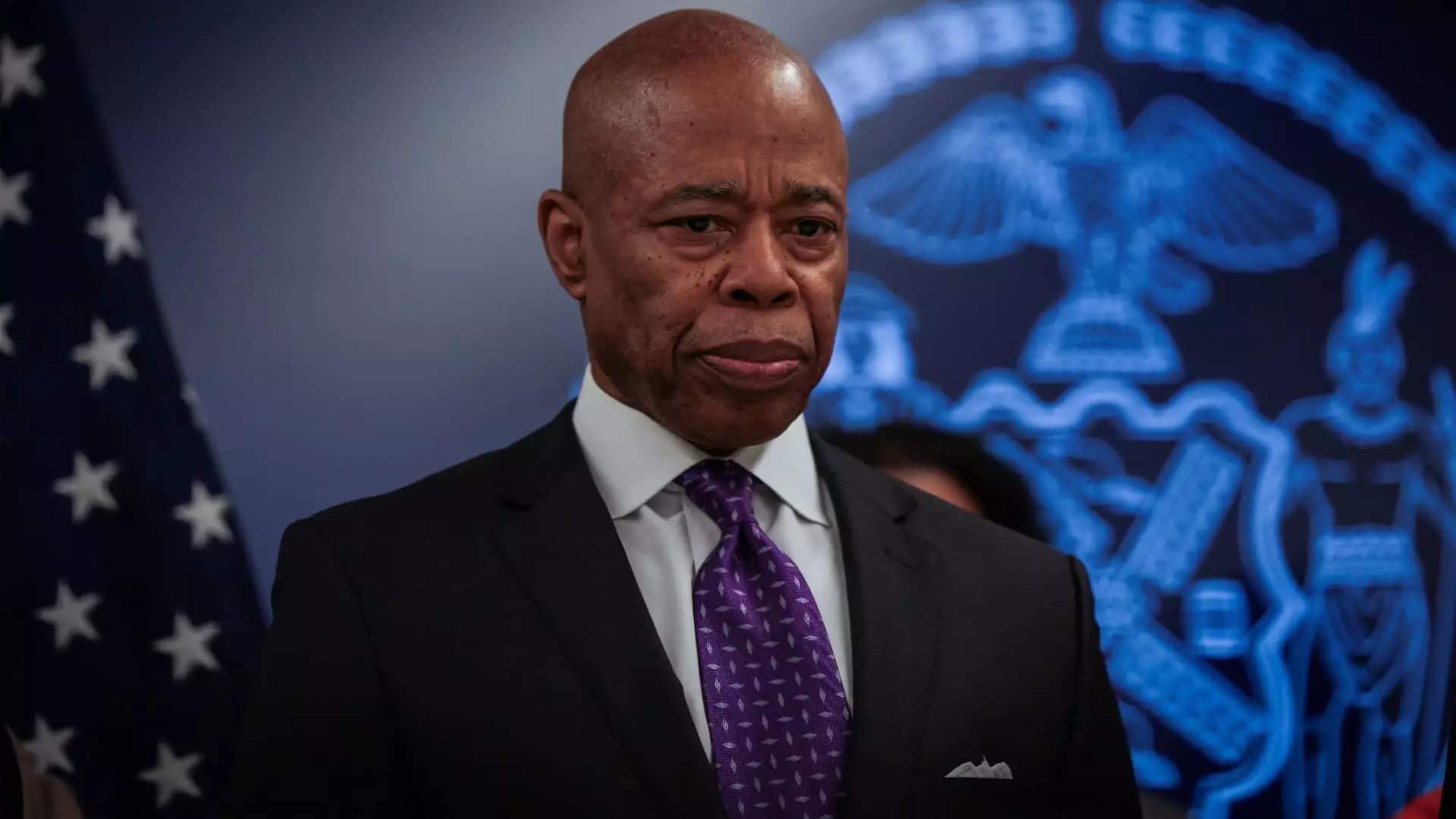In a scenario reminiscent of the often tumultuous intersection of politics and justice, a New York judge has decided against immediately dismissing corruption charges against Mayor Eric Adams. However, he has opted to indefinitely delay the trial, following an unusual request from the Justice Department to dismiss the case entirely. This postponement raises a host of issues, including the implications for democratic governance in the nation’s largest city and the broader ramifications for the current administration in Washington.
The U.S. District Judge Dale Ho revealed his plan to appoint a special counsel to scrutinize the Justice Department’s recommendation for dismissal. This decision emphasizes the complexity of the case. Prosecutors, originally involved in the matter during the Biden administration, had moved forward with charges alleging that Adams accepted bribes and campaign contributions from Turkish nationals aiming to influence city policies. The political landscape is further complicated by claims that the charges are intertwined with broader issues involving immigration policy and executive influence from Washington.
Adams’ troubles began last September when he was charged with serious allegations that could undermine his political future. Now, as he navigates these treacherous waters, the stakes are high—not just for his reelection campaign but for the integrity of governance in New York City and potentially nationwide. The charges, as outlined by federal prosecutors, allege that he improperly received funds and favors that compromise his office’s impartiality.
The backdrop to this case is critical. The request for dismissal of charges against Adams came as numerous prosecutors bucked orders from Acting Deputy Attorney General Emil Bove—a Trump appointee. Such a scenario, where political affiliations appear to dictate legal proceedings, adds a troubling layer to the situation. The fallout has provoked a sharp backlash among Democrats, who are concerned that dropping the charges would render Adams beholden to the Trump administration, creating moral and ethical dilemmas that would echo throughout his leadership.
Interestingly, this case is not merely about allegations of corruption. It showcases the exhilarating drama of political deals and covert negotiations that occur in the back rooms of power. Adams has reportedly insinuated that Biden’s Justice Department sought retribution against him due to his outspoken views on immigration policies—an assertion that, while lacking evidential backing, reveals an intricate web of political maneuvering. His evolving relationship with Trump, marked by visits and gestures of goodwill, poses questions about allegiance and loyalty within the shifting sands of American politics.
Further complicating the narrative, the circumstances surrounding the resignations of senior prosecutors signal a discord within the Justice Department. Danielle Sassoon, previously considered a rising star, chose to leave her position as acting U.S. Attorney rather than comply with directives that seemed to blur the lines between legal obligation and political expediency. This lends credence to concerns about integrity and the potential for politicization in prosecutorial conduct.
As the political stakes continue to rise, New Yorkers are left grappling with the implications of these events. Adams’ position could set a precedent for how corruption cases involving elected officials are handled—particularly regarding how political influences and affiliations shape judicial outcomes. The call from several New York Democrats for Adams to resign speaks volumes about the erosion of public trust in leadership and governance. Additionally, Governor Kathy Hochul’s decision to refrain from using her power to remove Adams while advocating for enhanced oversight reflects a careful balancing act in an already tense political atmosphere.
This complex and evolving saga demonstrates the fragility of political power dynamics. It exposes deep-seated issues regarding accountability in leadership, the influence of partisan politics on legal proceedings, and the essential question of how much influence should political relationships hold over judicial matters. The outcome of this trial, initially delayed but looming on the horizon, will likely have repercussions beyond the courtroom—affecting public trust and the very fabric of New York City’s democracy for years to come. The evolving political crisis raises more questions than answers, as New Yorkers and the nation watch to see how the tale will unfold.


Leave a Reply